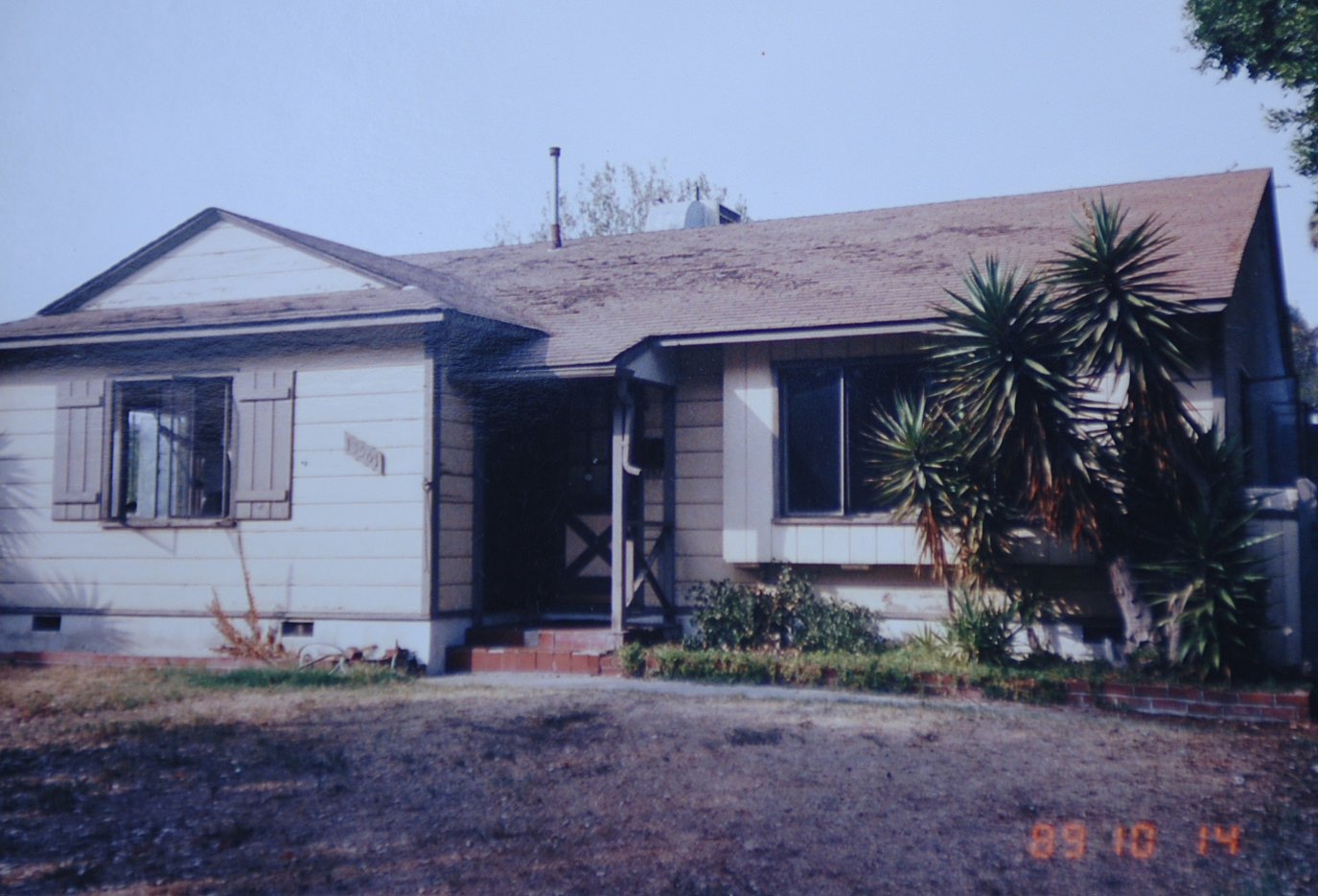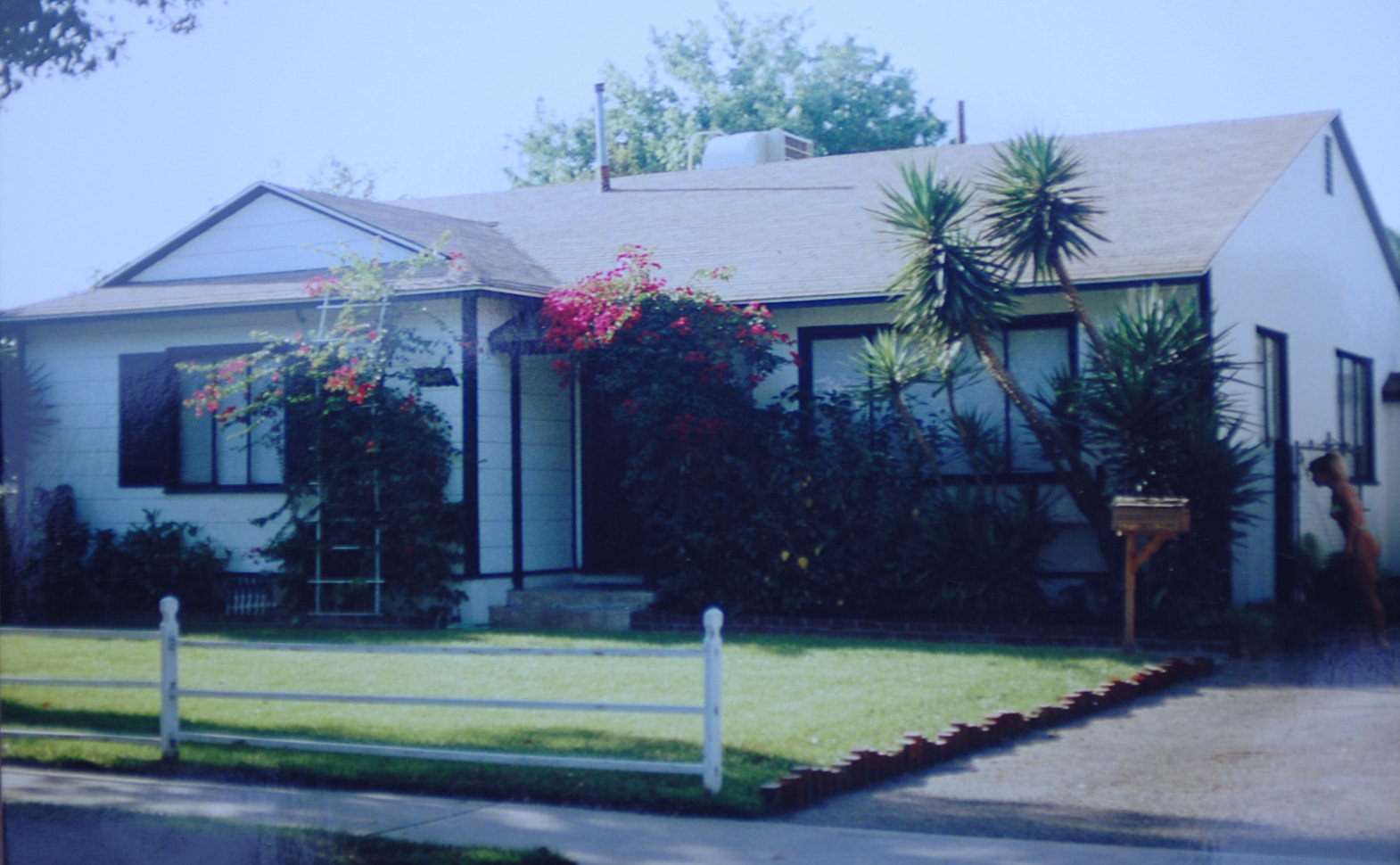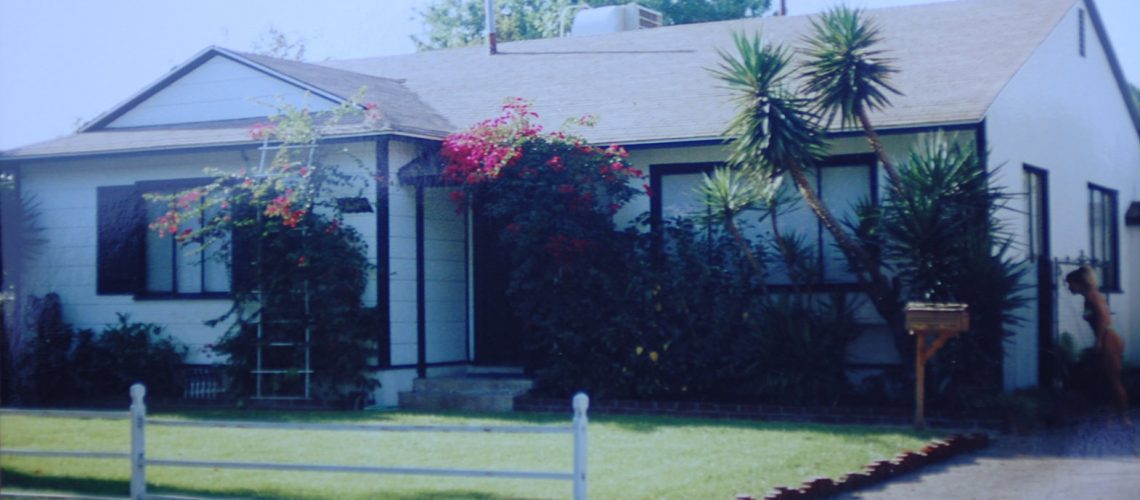Once, while reading a book, I came across the term “loss aversion.” I didn’t know the meaning, but immediately I thought of the loss of our first house in Southern California. We had purchased a fixer upper with money we had saved over two years with both of us working 10 to 12 hours a day at the gym.
At the time our monthly budget for food and other necessities was Spartan—no movies, no buying books, no eating out. Through sacrifice, we were able to achieve the American dream. We were so excited that we had a place of our own, at last.

We fixed up the house ourselves, replacing the roof by borrowing a video from the local library entitled “How to Fix a Roof,” refinishing the floor, painting each room and the entire outside. Our clients would always comment that we smelled like paint and turpentine.

Then the Northridge earthquake damaged many of the houses on our street, including ours. Most of us didn’t have money for quick repairs, so in time the neighborhood became run down. When helicopters started flying over our house looking for drug dealers, and we heard gun shots a house away, we realized that we had reached a crossroads. With heavy hearts, we ended up taking a loss on the house, surrendering it to the bank so that we could continue our education.
On that day I looked up the meaning of the phrase that had triggered such an old memory:
In economics and decision theory, loss aversion refers to people’s tendency to prefer avoiding losses to acquiring equivalent gains: it’s better to not lose $5 than to find it. Some studies have suggested that losses are twice as powerful psychologically as gains. This leads to risk aversion when people evaluate an outcome comprising similar gains and losses: since people prefer avoiding to making gains.
So what did we gain that day when we sacrificed our first home and our dream? We gained the possibility of a new, greater dream—the fulfillment of our ambitions. We found renewed energy, excitement about the possibilities that awaited us, and freedom from our attachment to the idea of ownership. We knew that with liberation we could make a life for ourselves anywhere.
Sometimes I wonder where we would be if we had sacrificed our education to keep the house. I’ve seen this way of thinking in myself, my husband and others—the situations were different but the behavior seemed to be the same. What makes us act irrationally in the face of facts that tell us to do otherwise? You always have a choice.
I understood this phenomenon in many practical situations, especially related to my clients. Some examples:
- Certain clients had a problem with canceling their gym membership, even though they never went, often for years.
- Others could not stand to give up their personal trainers or classes, even though they had never really helped them.
- Fitness magazine subscriptions and books would pile up, even though no one read them. This would also happen with cooking magazines and cookbooks.
- Clients clung to everything from their old routines: protein powders, exercise equipment, workout tapes, etc.
- Those who lost weight (which is almost all of them) would hang onto old clothes, “just in case.”
So what is it in us that is so irrational and holds on to something that is useless, that doesn’t bring anything positive into our lives?
How do you recognize that you are in the state of mind of loss aversion? Are there any signs and what is the solution?
In all of these behaviors we can see the fatalist at work. Someone who is living in the past, who doesn’t have the courage to sacrifice an old dream or way of being for the new life that is struggling to emerge. This is why following a strong daily routine is so important—new habits are fragile, and this clutter can distract us and drag us back. Daily meditation, journaling, and following a concrete plan that you’ve set for yourself is crucial to keep your vision of the future alive.
DEEPER CONTEMPLATION
If you could think of a loss aversion story from your own life, what would the subject be? How did you cope with the challenge?
Leave your response below in the comments.



Loss aversion. I can truly relate. It takes a whole shift of mindset to let go of what we think brings us joy, security and comfort, and the allure of the “American Dream”. Real freedom isn’t in the things we own, it’s the ability to choose, to be a master of our choices. Yet, to choose health, connection and well being over money and things is the ultimate test, especially living here in the Silicon Valley where parking lots are full of Teslas and a fixer upper home is $1.2M. It’s cliche but true, “if you don’t have your health you don’t have anything”. Yet, it’s incredibly hard to reprioritize and let go of what is perceived as a “loss” on any level. There is such a strong pull or aversion to letting go of old ways, possessions….even if it keeps us sick, poor, fat, or in miserable relationships or jobs. The Happy Body way of living and Being is such a gift, a simple clear plan for real freedom.
Michelle, Thank you so much for your post. I definitely would rather be healthy and poor than sick and rich. The paradox is that as soon as we choose what is right and let go of what we do not need we spend less and we have more for other things in life. Liberation pays us.
We will never have enough of what we do not need.
hi – thank you for your transformational work! my husband and I started THB two weeks ago and it’s really helping us. Loss Aversion has been on my mind a lot after selling our beloved home in March 2016, I’m still hoarding all of the contents despite the fact that we don’t need them now, I’m feeling stuck and unable to let go. I’m try to accept these feelings and work with the part of me that feels the need to hold of out of fear of future loss, this is a spiritual practice and I’ve decided to take baby steps- starting Aug 1 I will identify one object a day to let go of and put them in garage for donating or selling. thanks again!
Kerrie and Andrew
Think about Stoics. They reach to control what they can and let go of what they cannot. As soon as you close that chapter focus on where you are going rather than where you came from.
I hang on to sitting at night in front of the TV with snacks. This is my rest time. I am afraid of losing relaxation time even though I know this is not really relaxing and it’s stopping me from working on little goals.
By creating we improve. Spend your time on something that accumulates. Think for example about writing a page a day. After 365 days you would have a book. The year will pass so live it as if you had that book already in your hands. Every day add to your better you.
Thanks for your honesty, Tamara. I struggle with this too.
Sadly this principle makes me think about a relationship that isn’t working anymore… but when is it time not to move on and discard, but to dig in and renew…? Especially when there is a family at stake? Is it the fatalist that hangs on or something more noble?
Keep fighting when it is still in your control and let it go as soon as it is not up to you anymore. Then focus on living gracefully – embracing a new life.
Any relationship can be redeemed and renewed. Maybe not to the way it was before, but to something great and worthwhile if you invest the time, forgiveness and love. If there’s a family at stake, you’ll never regret giving your all to make it work.
Of course, if there is substance or physical or other abuse, part of giving it your all may include getting outside help involved.
I don’t consume soy products or low-fat versions of food, which I know have chemicals and other things in them to make them “taste good” to the consumer. My scientific mind is having a hard time with the eating plan recommendations when its suggested I consume soy or low-fat items. I try to reconcile the fact that the Happy Body recommended way of eating, doesn’t insist I consume them, but the fact that its suggested as “good for me” and fat is “bad for me” makes me discount the entire recommendation. The fatalist in me definitely takes advantage of the fact that i’m not a full believer.
Fat is good but not more than 13% if you are a woman. It really does not matter where it comes from as long as we become 13% body fat and not more.
Thank you, Aniela, for such a well-timed blog post! I spent several hours today at my local storage unit, trying to winnow down my stored possessions in preparation for a move (from the DC area to Santa Fe).
If the entire storage unit had disappeared in a puff of smoke, I wouldn’t really care. But as I went through each item – my daughter’s high school diploma, an autographed book, a pair of golf shoes – I had to decide: keep or discard/give away? It was surprisingly agonizing.
So we get attached to the stuff we own. But I tried to follow the mantra: “Each item I give up, I’m a little more free.”
A day before we were living we did a garage sale. Sold everything but books and flowers. Already we were reinventing ourselves looking clean into the future. When we immigrated from Europe we landed in NY with only one luggage which was stolen in Detroit. Aniela was devastated. Our diplomas were there, pictures, even our wedding bands. I looked at her and in a quiet voice, “Maybe God wants us to start clean.” We began our life with a $1000 and clothes only on us without knowing anyone in the US. It is never too hard but it is if our emotions are backward dragging us away from the future into the losses that don’t have any meaning anymore. The glass is always half full.
Hi Aniela, thank you for sharing your profoundly moving story. I have been aware of loss aversion for a long time in my own life in many different contexts and for me the difficulty comes in giving up something that has value for us. Giving up things that are clearly bad is just a matter of taking one step and the next until you have formed a good habit. The harder part is giving up something that is important and good and has value. For that, the solution I have found is sometimes in those situations, you can have or do all the good things but just not all at once. For example having a wonderful career, competing at a high level in sports, being a very committed wife and mother. Very hard to do very well all at once. I have found that as long as you know what your true values are in life and you choose how you spend your time (more important than money because you can’t get it back) in accordance with those values, there is peace and joy. One of those values must be health or the other values will not be achievable for the long term. At the heart of health is balance, humility and grace – all of which are in abundance in the program that you and Jerzy have brought into the world. A heartfelt thank you from me to you both.
Hi Cherrine,
Thank you for your kind words. It seems that you already got some wisdom about finding the equilibrium in your life. I know firsthand how working, being a mom, wife and finding time for my hobbies and passion can be difficult. But at the end it is ver fulfilling. Connecting and surrounding yourself with like- mind people is one of the great inspirations in bettering yourself. I wish you all the best!
Warmly,
Aniela
Being newly retired and turning 70 yrs old, my challenge was giving up the desperate pursuit of my old “community” of relationships and following the tenets of the Happy Body, they were incongruent. After all, if I could not keep up with my old community in the mainstream, I was giving in to becoming invisible, and irrelevant. It all wreaked of “loss”! But this was not serving me well because it kept me attached to old habits and attitudes that could not support a new platform for my life. Life in this community ignored and denied the challenges of aging, because they are real, frightening, and, I thought, loss of “vitality”. The Happy Body program showed me that this passage is not to be feared and dreaded, but to be embraced and pursued for its richness at all levels. Turning 70, is not jumping off the cliff into oblivion, but jumping into a whole new way of life that is richer than I could have imagined. This is my new “community”.
Cheryl,
Thank you for your comment and sharing some thoughts and feelings about your journey you are on toward your happier self. It is fantastic to see how you’ve gained confidence that you will be able to cope with whatever life throws your way – in spite of growing older. Age can be just a number and you are proving it with your attitude toward excellence. Be as good as you can be. And life gets better.